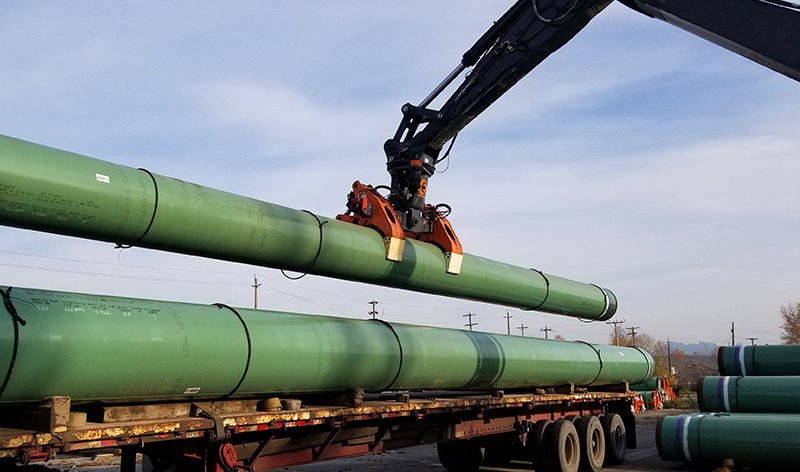The Canada Energy Regulator, Trans Mountain and the Indigenous Advisory and Monitoring Committee for the Trans Mountain Expansion Project and Existing Pipeline have reached a joint agreement on Indigenous monitoring.
Earlier this year, leaders from all three organizations endorsed the initiative, which is aimed at identifying opportunities to improve TMC’s and the IAMC-TMX’s respective Indigenous monitoring programs for the project.
“This agreement represents how we are fundamentally transforming the way the CER works to advance reconciliation with Indigenous Peoples,” said CER Acting-CEO Sandy Lapointe, in a news release. “Collaborating with the IAMC-TMX and Trans Mountain is helping us develop best practices in Indigenous monitoring and will inform how we approach and expand Indigenous inclusion in oversight for all future projects.”
The announcement comes a week after the Supreme Court of Canada declined to hear a case from the Squamish and Tsleil-Waututh Nations that could have halted the Trans Mountain Pipeline expansion for a second time.
“This case is about more than a risky pipeline and tanker project. It is a major setback for reconciliation. It reduces consultation to a purely procedural requirement that will be a serious barrier to reconciliation,” said Tsleil-Waututh Nation Chief Leah George-Wilson in a news release. “What I can tell you today is that this is not the end of the story.”
These Indigenous monitoring program discussions were made in light of the COVID-19 pandemic.
“In-field inspections are still being performed, and work is ongoing to ensure Indigenous monitors and federal staff can conduct inspections safely, consistent with public and occupational health requirements,” said Lapointe.
The three parties found common ground, the news release said, and developed a shared goal: to ensure the project is built safely, in full regulatory compliance, with Indigenous participation in oversight, and with minimal harm to the environment and Indigenous interests.
“We’re working hard to put Indigenous boots on the ground, partnering with federal regulators to protect Indigenous interests,” says IAMC-TMX Indigenous co-chair Coun. Michelle Wilsdon of Enoch Cree Nation. Councillor Wilsdon is also the Chair of the Indigenous Caucus, which is comprised of the Indigenous members of the IAMC-TMX. “Through this new initiative, we are seeking to better ensure the knowledge, values, and perspectives of Indigenous communities are respected and incorporated into how the project is built, with the overall aim of advancing Indigenous interests in the oversight of the project.”
The co-development initiative between the three organizations began in September 2019, when the CER requested Trans Mountain to collaborate with the IAMC-TMX outside of the regulatory process to assess and explore improvements to Indigenous monitoring programs.
The IAMC-TMX brings together 13 Indigenous representatives and six senior federal officials to address shared interests such as Indigenous monitoring, Indigenous inclusion in emergency management, and mitigating the impacts of temporary labour camps. Indigenous members are selected on a regional basis by the 129 impacted Indigenous communities and participate “without prejudice” to their views on the project. The committee is not a rights-holding body and is not a forum for consultation.



